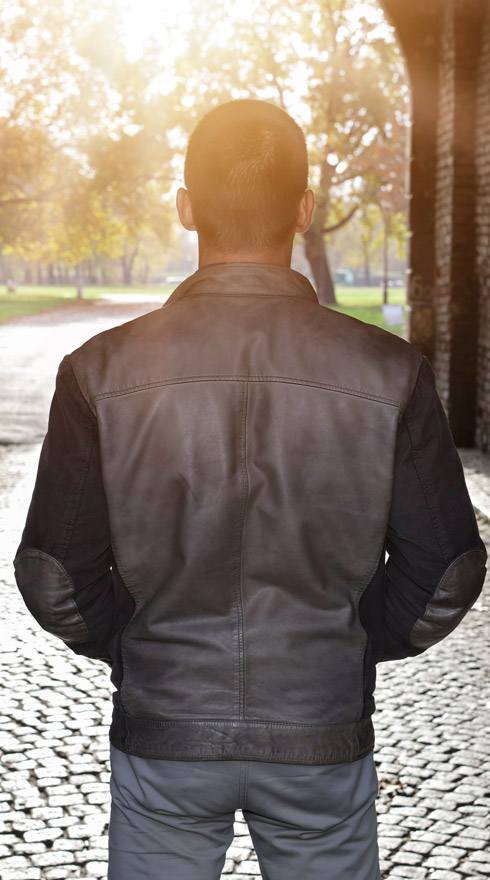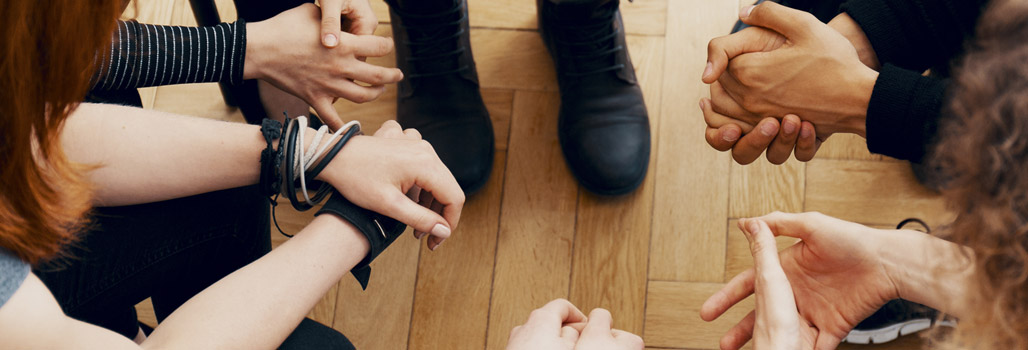It can be so difficult when you or someone you care about has struggles with alcohol or drug use, that you don’t know how to help. Although addiction is a disease, it can be effectively treated when evidence-based therapies are explored. Long term recovery is possible.
The following page will explain integrated approaches to addiction rehabilitation and how you or someone you love can begin and maintain addiction recovery.
What is Addiction Rehab (Rehabilitation)?
Addiction ‘rehab’ is a broad term that explains the psychotherapeutic and medical treatments that are used to help individuals heal their dependencies on illegal & legal substances. Treatment that is customized to your lifestyle needs is successful when it includes medically-managed detox, residential programs, outpatient programs and aftercare.

Facts & Statistics about Addiction in Ceres
Prevalence of Substance Use Disorder, by Drug Type
(IN THOUSANDS)
- 2,7578.5%Any Substance
- 2,0886.4%Alcohol
- 1,0683.3%Ilicit Drugs
- 2060.6%Pain Medication
Drug- and Alcohol-Induced Deaths by Age Group, California, 2016
- Alcohol-Induced
- Drug-Induced
- 18 to 250.5
- 9.6
- 26 to 354.3
- 13.9
- 36 to 6424.2
- 22.9
- 65+23.7
- 9.4
Drug Use, by Selected Type and Age Group California, 2015 to 2016
- 12 to 17
- 18 to 25
- 26+
- Marijuana*13.2%
- 34.0%
- 13.5%
- Misuse of Pain Medications3.5%
- 8.0%
- 4.3%
- Cocaine0.8%
- 7.2%
- 1.8%
- Heroin0%
- 0.4%
- 0.2%
What are the treatment options available in Ceres?
An integrated approach is considered the best way to address and heal the underlying causes of drug addiction and alcohol addiction. Identifying coping mechanisms to treat the main causes of your substance dependency is just as vital as treating the symptoms of addiction.

Private Residential Programs
Residential rehabilitation programs enable you to remain on the same property that you are obtaining treatments in. One of the biggest pros is access to 24/7 treatment and support.
There is notable value in taking yourself away from the home environment and becoming fully immersed in the addiction treatment program, because you are no longer sensitive to the triggers and stressors that may have caused you to use drugs. By opting to stay in a controlled environment that is designed to be supportive, you have a greater chance of finishing your addiction treatment program without relapse and its associated risks.
Residential addiction treatment programs are useful for individuals with intense alcohol or drug dependencies, co-occurring disorders or dual diagnosis. Getting sober is achievable if you take part in a residential rehab program, but if you wish to maintain sober living you will have to rise above the challenges that are associated with the first year of recovery. After you complete your residential addiction treatment program your priority will be your transition to greater independence as you consider what you want from your life free from drugs or alcohol.
Do You Need Help?
Start your recovery today.

Sober Living Programs
Sober living rehab programs are designed to enable you to have more control over your life, through guidance and supportive structures. The programs include:
- A house manager to check in on you daily
- Develop guidelines for positive behaviors in recovery
- Friendship and support from others who are having similar challenges to you.
Outpatient Programs
The flexible approach to outpatient programs means that you do not have to stop going to work or attending family commitments, as you can attend the treatment facility and have regular treatments at your own pace.
Outpatient programs are best known for:
- Education around drug misuse
- Talking therapy and counseling by means of group interventions and individual sessions with a trained addiction therapist. – Outpatient programs should run from a few months to over a year, and your personal needs will determine the necessary duration of treatment.
Detox Only Programs
The process of alcohol or drug detox from your body is the first stage towards rehab, because it removes traces of the substance and puts an end to your physical dependence. As your body returns to normal function without the substance in your system, you typically experience the symptoms of withdrawal.
Once you get through the difficult phase of physical withdrawal you will enter the second part of your rehab journey, working through the root causes of psychological dependency in order to put a stop to the cycle of abuse. You should expect to feel some cravings and withdrawal symptoms for a few weeks after your drug or alcohol detox has completed. Rehab teaches you life-changing skills to take into your new life so that you limit the risk of relapse.
Paying for Private Treatment
If you have chosen to go ahead with private rehab, you will need to cover the costs or begin a claim via your health insurance provider. In most instances, insurance providers will cover the costs of treatment, to some extent, including a drug or alcohol detox regime, rehab program, and relapse prevention programs. The amount of cover you can claim will be contingent on your healthcare provider and policy type. We recommend that you confirm the amount you can claim on your policy before you take part in a rehab program.
By visiting our Verify Your Insurance page, you can learn what cover you are able to claim. Clients will have to pay for the cost of treatment if they do not claim from their insurance provider. Many treatment centres offer payment plans to clients so that the cost can be spread out.
State Funded Programs
If you are caught in the cycle of substance use disorder and have limited resources to pay privately for it, you should opt for a state-funded rehab program. Via Medicaid and state budget funding, these programs can help your recovery by including:
- Medically-managed detoxes
- Rehabilitation programs and aftercare support
State-funded treatment programs are open to those who are unable to get private health insurance or who reside in poorer areas. When applying you will be asked for:
- Medical records about your addiction issues
- Proof of residence
- Proof of your income
- Certification that you stay in the US legally
You can discover more about the application process here. This booklet provides your state agency’s contact details.

The following state-funded addiction rehab programs are available in Ceres:
Stanislaus Recovery Center Adult Treatment Programs
1904 Richland Avenue, Ceres, CA 95307
209-525-7411
www.stanislausrecoverycenter.comAegis Treatment Centers LLC
1235 McHenry Avenue, Suites A and B, Modesto, CA 95350
209-527-4597
aegistreatmentcenters.comLast Resort Adolescent Drug and Alcohol Treatment
218 East Orangeburg Avenue, Modesto, CA 95350
209-523-6910
www.thelastresortmodesto.com
Maintaining Addiction Recovery in Ceres
Maintaining addiction recovery can be hard once you leave the rehab center. The rehab environment was controlled and safe, and you were given professional support. Your coping skills will be put to the test when you leave rehab, as you may experience some challenges that you still need to learn to deal with. Long term recovery is more challenging if you have a severe dependency or if you return to your new life without social support structures in place. Without the relevant support and aftercare to guide you in your new life, relapse is a real possibility.
The following AA/NA meetings are available in Ceres:
Grupo Liberacion
En Espanol and Closed:
3026 4th St. Ceres, CA 95307
Tuesday: 6:00pm
https://svgna.org/AA - AA Forever
Open:
1660 Herndon Avenue, Ceres, CA, 95307
Friday: 5:00 pm – 6:00 pm
https://alcoholicsanonymous.com/AA - Freeway Fellowship
Discussion and Open:
1660 Herndon Avenue, Ceres, CA, 95307
Sunday: 12:00 pm – 1:00 pm
https://alcoholicsanonymous.com/

Aftercare & Alumni Programs
Aftercare programs extend your rehab program once you return to your daily life. Up to 60% of clients in recovery will relapse due to unpredictable life challenges, taking part in aftercare programs can improve your chance of staying sober. Once you approach the end of your rehab program, you will consider the treatment services most beneficial to your needs long-term, and a relapse prevention program will be implemented to help you sustain it.
Alumni programs are an added bonus to completing treatment and allows you community support with peers and staff members. You will gain access to Alumni events and receive guidance and encouragement from ex-clients who are also in recovery long-term. Additionally, you may want to take the opportunity to be supportive of others if you want to.
Support Groups (Fellowship Meetings)
Through support group meetings you will enable a support structure that is important to your long-term sobriety. You will benefit from long-term recovery support if you join groups like Narcotics Anonymous or Alcoholics Anonymous and attend any 12-step meetings.
Attending support group meetings provides you with an opportunity to you to feel empowered by other people and share your own experiences. Many people in recovery attend local meetings to assist them in the early and later stages of addiction recovery. Support groups provide them with the important tools to stay sober, allowing them to take responsibility for their actions to themselves and others.
Support for Families & Children Affected by Addiction
Addiction negatively impacts everyone living in the family unit to various degrees. Help is just as important for the family members as it is for the person with the dependency. Family support groups provide you with important coping lessons for your own life and help you to offer greater support to the loved one who has the addiction. Some useful support groups for families include:
- Parents of Addicted Loved Ones
- SMART Recovery Family & Friends
- NAMI Family Support Groups
- Al-Anon
- Families Anonymous
- Alateen
- Nar-Anon










